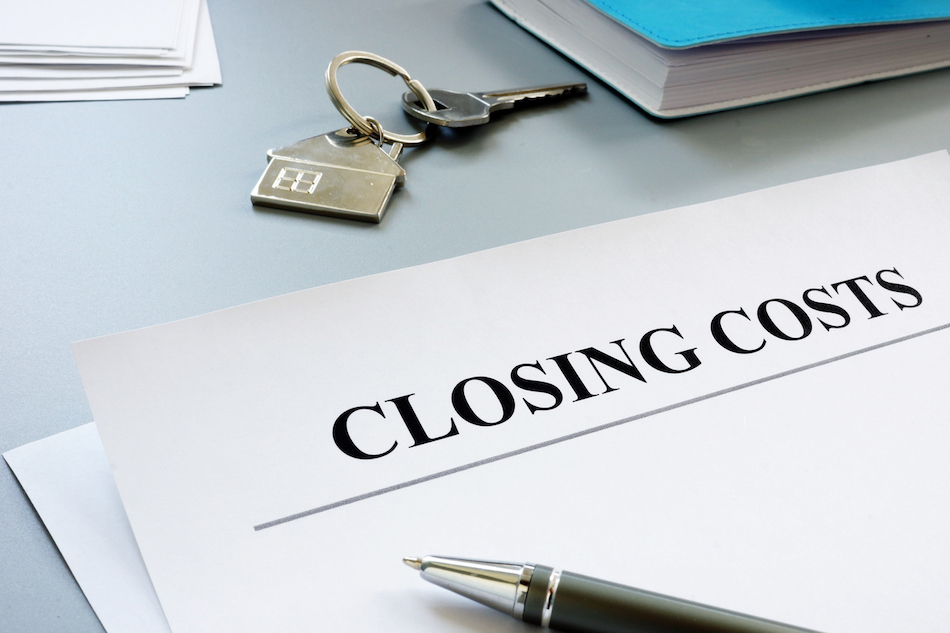A buyer’s down payment and a seller’s real estate commission aren’t the only expenses involved in a real estate transaction. Closing costs paid to a title company for facilitating the transaction and fees paid to the lender can add thousands of dollars to the cost of buying and selling a home.
Here’s a closer look at what closing costs in real estate are, the items that buyers and sellers normally pay for, and some strategies for reducing closing costs when a property is purchased or sold.
Key takeaways
- Real estate closing costs usually range between 2% and 5% of the loan amount for buyers, and between 1% and 3% of the sales price for sellers, excluding the real estate commission.
- Typical closing costs for buyers include loan application and underwriting fees, appraisal and home inspection, and impounds for prepaid expenses.
- Sellers normally pay closing costs such as an owner’s policy, a title closing fee, a home warranty for the buyer, and the real estate sales commission.
- Buyer strategies for saving on closing costs include asking the seller for a closing cost credit and minimizing the contingencies in the purchase contract.
- Seller strategies for reducing closing costs include understanding whether the home is in a seller’s market or buyer’s market, and minimizing sales commissions.
What are real estate closing costs?
Real estate closing costs are the fees and expenses buyers and sellers pay in a real estate transaction.
Buyer and seller closing costs can vary based on factors such as where the property is located, the type of loan being used to purchase the property, the type of property (single-family versus multifamily), and the amount sales commission paid to a real estate broker.
Costs and fees paid to close escrow can include a wide variety of expenses, such as:
- Property tax prorations
- Loan charges, like application fees and underwriting fees
- Credit report and appraisal fees
- Impounds for items including homeowner’s insurance and property taxes set up by the lender to pay future property-related expenses
- Title search and owner’s title insurance policy
- Recording fees and transfer taxes
- Real estate commission

Who pays closing costs?
The settlement statement (also known as a closing statement in some markets) is typically prepared by the escrow or title company, or a real estate attorney who is handling the transaction and breaks down the various closing costs that buyers and sellers pay.
Each state may use a different version of a settlement statement, but oftentimes a version of the settlement statement created by the American Land Title Association (ALTA) trade group is used.
How much are closing costs?
Buyer closing costs generally range between 2% and 5% of the loan amount, while seller closing costs usually range between 1% and 3% of the sales price.
These percentages do not include the down payment a borrower makes when financing a property, or the sales commission paid by the seller to a real estate broker.
Buyer closing costs
Buyer closing costs can be estimated based on the loan amount.
Assuming a buyer makes a conservative 25% down payment, the loan amount on a single-family rental home with a purchase price of $150,000 would be $112,500 ($150,000 purchase price minus 25% down payment of $37,500).
Based on a loan amount of $112,500, buyer closing costs might range between $2,250 and $5,625, or between 2% and 5% of the loan amount.
Every real estate transaction for buyers is different. Financing fees will vary from lender to lender, closing costs will vary from state to state, and the seller may agree to offer a credit toward buyer closing costs.
According to the closing costs calculator from SmartAsset, these are some of the typical closing costs and fees a buyer can expect to pay, based on a loan amount of $112,500 to purchase a home in Texas:
- Loan origination fees $775
- Appraisal fee $462
- Credit report fee $25
- Flood certification $11
- Title search and lenders title insurance $100
- Home inspection $125
- Survey $213
- Attorney, closing, and settlement fees $430
- Postage/courier fees $36
- Government recording fees $118
- Prepaid homeowner’s insurance (12 months) $750
- Pre-paid daily interest rate charges (for 15 days) $127
- Escrow homeowner’s insurance (impound account, 2 months) $125
- Escrow property taxes (impound account, 3 months) $683
- Owner's title insurance $1,105
- Total buyer closing costs $5,085 or 4.5% of the loan amount of $112,500
Seller closing costs
Seller closing costs are calculated based on the sales price of the property.
Using a single-family rental home with a sales price of $150,000 as an example, a seller could expect to pay between $1,500 and $4,500 in closing costs, or between 1% and 3% of the sales price.
In addition, the sales commission paid by a seller in this example vary, depending on the fees charged by the seller's real estate agent or broker..
According to the seller net sheet calculator from Stewart Title Guaranty Company, these are some of typical closing costs and fees a seller can expect to pay, based on a sales price of $150,000 for a home in Texas:
- Owner’s policy $1,096
- Title closing fee $375
- Title policy guaranty fee $2
- HOA statement or transfer $250
- Resale certificate $500
- Survey $500
- Attorney fees $180
- Home warranty (for buyer paid for by seller) $520
- Tax certificate $48
- Release recording fees $34
- Total seller closing costs $3,505 or 2.3% of sale price of $150,000 (excluding property taxes assessed but not yet due, and the real estate sales commission)

How to save on closing costs
Real estate closing costs can easily run thousands of dollars or more, for both buyers and sellers. Here are some tips for reducing closing costs when a rental property is bought or sold:
How buyers can save on closing costs
In addition to making a significant down payment, real estate investors buying rental property can expect to pay up to 5% of the loan amount in closing costs.
Depending on how competitive the local real estate market is and how motivated the seller is, some sellers may agree to a lower sales price or agree to pay for some buyer closing costs for an offer that is attractive.
For example, if the seller is asking $150,000 for the home, a buyer might make an offer for $147,500 plus 2% of the purchase price to be credited toward buyer closing costs.
Here are some strategies buyers use in order to increase the odds that a seller will agree to a lower price or a seller-paid closing cost credit:
- Reduce the number of contract contingencies to the bare minimum, such as only requiring the home pass inspection and that the property appraise for the purchase price
- Buyers who waive the financing contingency should be certain that they can obtain a loan for the property or that they can pay in cash and refinance at a later date
- Minimize the number of demands made to the seller, and instead only ask for the things that are most important to the buyer
- Buyers who ask for everything, such as the seller to make numerous minor repairs plus countless contract contingencies plus a low asking price plus a credit from the buyer may find see a seller walk away from the deal
- Offer a quick close of escrow, such as 30 days instead of 60 or 90 days, so that the seller knows they will receive their proceeds in just a few weeks instead of months
How sellers can save on closing costs
Sellers can expect to pay closing costs of up to 3% of the sales price of the home, plus real estate commissions. Fortunately, there are several things a seller can do to potentially save on closing costs:
- Sellers can sell their property with a broker who charges low fees. For example, the Roofstock Marketplace charges only a 3% fee
- If the home is located in a seller’s market where there is more demand from buyers than there is supply and multiple offers are the norm, a seller may be able to decline giving the buyer any discount on the asking price or agreeing to closing cost credits
- However, buyers who are extremely motivated may agree to pay for some of the seller’s closing costs in addition to their own
- Selling the home as a turnkey rental property with a tenant already in place may also motivate buyers to minimize their requests for seller-paid closing costs
- Many title and escrow companies offer an investor discount for sellers (and buyers) of rental property, although the closing officer will need to be asked for the best price on closing fees
Wrapping Up
There’s a saying in real estate that everything is negotiable, and oftentimes that’s true with real estate closing costs.
Title companies may offer investor discounts, although they will need to be asked. Buyers strategies for saving on closing costs include asking the seller for a credit and making a squeaky clean offer that the seller will find it hard to say no to.
One way for sellers to reduce closing costs is by listing the home for sale on Roofstock, where the sales fee is just 3% of the purchase price.









